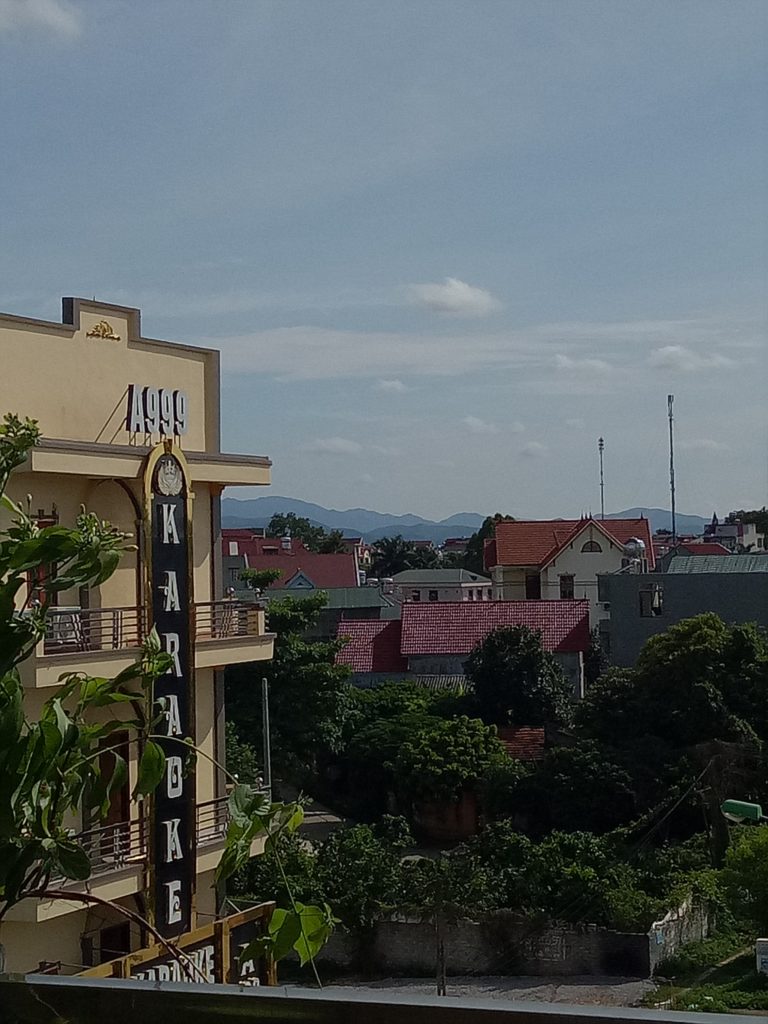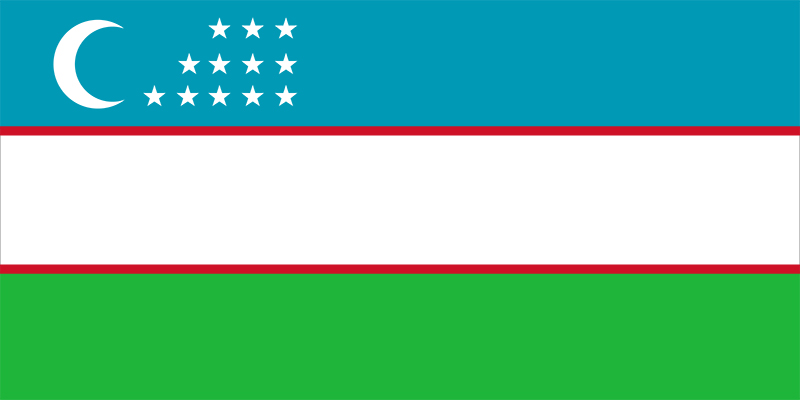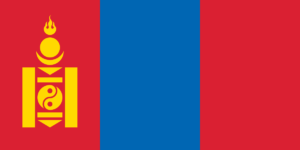Arria Hauldin is a 2021 – 2022 Gilman Alumni Ambassador. Hauldin spent the summer of 2019 in Viet Nam as a Gilman Scholar.

Picture of the Karaoke place right across the street from my school in Chu, Viet Nam.
Almost two years into the global pandemic, you might be wondering about what life would be like if you lived somewhere else. Maybe you want to start exploring the world as more places open up, but the unpredictability of the current global landscape could make planning challenging. After my time in Viet Nam, I knew I wanted to live abroad for a longer period of time. With my graduation date, May 2020, fast approaching, I wanted to live and work abroad for a few years before applying to graduate school. Once I returned to the United States in the Fall of 2019, I decided to apply to the U.S. Peace Corps.
The opportunity to pursue service in an international context was a path I wanted to continue, so the Peace Corps became the perfect choice for me. My Gilman experience helped me reframe my international aspirations and apply them to my Peace Corps application. In my motivational statement, I discussed my international, cross-cultural, and English teaching experience and showcased my desire to continue fine-tuning these skills while adding other aptitudes, such as language learning, throughout my service. In my interview, I was able to draw on certain experiences, such as the fishbowl feeling I felt in rural Viet Nam, and highlight coping mechanisms that I could apply to other cultural contexts. In October 2019, I was invited to serve in US Peace Corps Mongolia which was set to depart in May 2020. In March 2020, the COVID-19 Pandemic altered those plans.
In the spring of 2021, I still had aspirations to live abroad, but knew the Peace Corps was on hold for the foreseeable future. After confiding in my fellowship advisor, I decided to apply for a Fulbright English Teaching Assistantship in Uzbekistan. Researching Mongolia piqued my interest in other East and Central Asian nations. Uzbekistan stood out to me due to its unique history, beautiful architecture, and its distinct religious background. The opportunity to teach in Uzbekistan and learn more about its education system appealed to me because I would be able to explore a culture that was starkly different from previous international experiences.


Top – Uzbekistan’ flag. Uzbekistan is a country located in Central Asia.
Bottom – Mongolia’s flag. Mongolia is a country located in East Asia between Russia and China. Both countries are landlocked, post-soviet, countries that gained their independence in the early 1990s.
I spent the summer of 2021 crafting, drafting, and editing my essays with my fellowship advisor. Similarly to my Peace Corps application process, I took the time to reach out to former Fulbright recipients, attend webinars, and browse articles featuring different perspectives. I also spent my time researching Uzbekistan and trying to understand the current events in the nation. Similarly to my Gilman application experience, I worked closely with my fellowship advisor, but also reached out to a wide-range of people, from family to fellow applicants, to proofread and edit my Fulbright essays.
Beyond my Fulbright application, I implemented the same strategies for other fellowship applications that span a similar geographic region. My Gilman experience has been the center of many applications due to the experiences I gained as a Gilman Scholar. My time in Viet Nam allowed me to explore a part of the world I only knew through history books; my time there brought the country to life for me. Additionally, I was able to represent a portion of the American experience that is not often shown to individuals abroad. Cross-cultural exchange was an essential aspect of my time in Viet Nam and I want to continue this in 2022 whether I am in Mongolia, Uzbekistan, or elsewhere. My Gilman experience solidified my desire to see more of the world which will shape my self-perception, my abilities, and my place in the communities I adopt as home.



